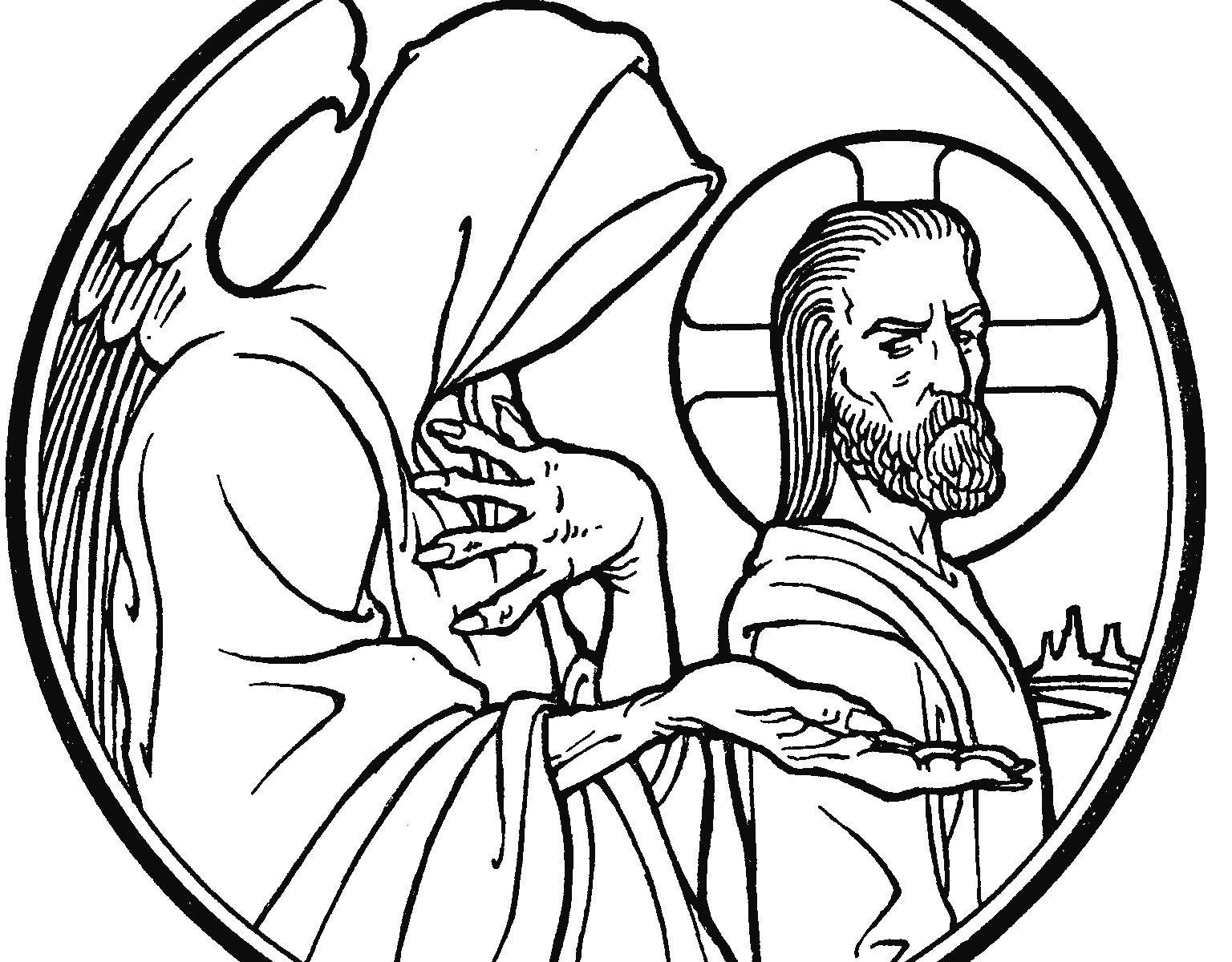~ Invocavit ~
Readings: Genesis 3:1-21 | 2 Corinthians 6:1-10 | Matthew 4:1-11
Text: Matthew 4:1-11
Doctors who fight infections are all too aware that having just one weapon isn’t enough. Viruses and bacteria each respond differently to medication. Sometimes a strain comes along that refuses to respond to treatment. Then, newer, stronger, and more innovative means must be developed.

But this is never the case with the Word of the Lord! His Word endures forever (Isaiah 40:8). His Word always accomplishes the purpose for which He sends it (Isaiah 55:11). Similar to acute infections, all of us suffer from original sin and its fruits. We’re also regularly attacked by the malignant spiritual enemy of the devil. But no matter how cunning he is, he will never grow resistant to God’s Word. The Word will always cause the devil to flee, as we heard today in the Temptation of Christ.
The context helps us better appreciate the Temptation. In all three synoptic Gospels—Matthew, Mark, and Luke—Jesus’ temptation comes immediately after His Baptism. There at the Jordan, He is declared to be the Son of God. Satan doesn’t comes to congratulate Him or bow down before Him, but to try to make Jesus fall like he had made the first man and woman fall. The Serpent had gotten all mankind to fall by appealing to their reason—“sin came into the world through one man, and death through sin, and so death spread to all men because all sinned,”[1]
This time, the Tempter chose to appeal to Jesus’ divinity: Command these stones to become bread, throw yourself down, and gain the glory of the kingdoms of the world. Do it for your own glory (doesn’t God want to be glorified, after all?). Don’t trouble yourself with this pitiful human race. Didn’t you regret that you had made them once, anyway? They won’t appreciate what you do for them. But Jesus, the Son of God, wouldn’t have it. “If many died through one man’s [Adam’s] trespass, much more have the grace of God and the free gift by the grace of that one man Jesus Christ abounded for many.”[2] The devil was not successful in making Jesus fall, and that victory is given to all who are in Him.

The devil tempted Jesus because He is the Son of God, and Satan like cannot stand to have any child of God not be condemned. So, he tempts everyone whom God has made His children through faith.[3] This is why St. John heard the angel say, “Woe to you, O earth and sea, for the devil has come down to you in great wrath, because he knows that his time is short!”[4] It’s not much comfort by itself, but one way you can know for certain that you have a true faith in Christ is that you will be assaulted by the devil. You have assurance from your Lord who endured this assault with you. On the other side of His temptation, He tells us, “Blessed are you when others revile you and persecute you and utter all kinds of evil against you falsely on my account. 12 Rejoice and be glad, for your reward is great in heaven, for so they persecuted the prophets who were before you.”[5]
No doubt, the devil is a powerful enemy over humanity. He’s still extremely cunning, and if he pulled a fast one on sinless Adam and Eve, imagine how much more he is able to hoodwink us! In our weakness, we won’t necessarily be able to put our finger on the temptation the way Jesus does in the Gospel. Yet, the effect of the devil’s work is still evident. Just like many diseases are identified by their symptoms, the devil’s temptations can be seen by their resulting sin. Take these examples:
- The Tempter draws God’s children away from the Word—the only medicine that can heal them and drive Satan away. You might hear someone say they had a falling out with people at church or they have a disagreement with whoever the pastor is. Yet, when the end result is them not hearing the Word you know who’s really behind it. Satan is delighted to cause those emotional wounds to fester and bring up bad memories that drive a wedge between the sheep and the voice of their Shepherd.

- In school, your children’s future can seem like such a noble goal. At work, you can feel like you’re catching up on all the things you haven’t gotten to yet. Yet, if you would rather see your children at special events and projects get done around the house, more than being in the Divine Service where Jesus is, remember that Satan promised Jesus the kingdoms of the world and all their glory.
- Another of the devil’s favorite tricks is to convince you that you’re so well-grounded in your faith that you can let Bible study or devotions slide. You “passed” confirmation like you got your diploma from high school or college. Trouble is, there’s no end to the things Satan can convince you to believe when you only think you know what God’s Word says. Being a student of God’s Word is something we never ought to “graduate” from!
The devil’s tactics have not changed from the time of Adam and Eve, to the Temptation of Christ, to today. He is still the same evil angel who aims at the destruction of all who cling to God by faith. But just the same as that hasn’t changed, God’s Word is still the antidote against his temptation. St. John tells us, “The reason the Son of God appeared was to destroy the works of the devil.”[6] The work of the devil is seen in doubt and unbelief, robbing us of the salvation which Christ brought into the world for sinners. He stirs up doubts and makes the poison of sin look sweet and harmless. But all these works are on the chopping block for the Christian. In His birth, His Baptism, His temptation, His Passion, His Resurrection, and Ascension, Jesus Christ destroys the works of the devil.

He destroyed them that day by overcoming where Adam and Eve had fallen, and standing in our place as the faithful and Holy One. He won the victory for all who believe through His innocent suffering and death, breaking the sting of sin and the power of death. He continues to overcome through the Holy Spirit in you, bringing that Almighty, life-giving Word to your mind and heart.
Unlike hepatitis B, it’s not that you’ll be inoculated by a one-time dose of the Word of God, but in each temptation, the Lord will show you His power to rescue you even in your weakness. He taught us to pray regularly: “Lead us not into temptation” and it’s good for us to recall what this means:
God tempts no one. We pray in this petition that God would guard and keep us so that the devil, the world, and our sinful nature may not deceive us or mislead us into false belief, despair, and other great shame and vice. Although we are attacked by these things, we pray that we may finally overcome them and win the victory.
That’s how we, as dearly beloved, baptized children of God withstand the devil’s assaults. He may be strong, but the Word within you is stronger—“The word is near you, in your mouth and in your heart.”[7] Arm yourself with that Word, and believe its powerful work. We can’t praise the Lord enough for how accessible His Word is to us now. Study it, meditate on it, learn it by heart. Keep studying your Catechism. It may seem like the very basics, but it is the very Word which sends the devil running.
St. Peter, who was a fellow sinner whom Satan set his sights on, wrote to us: “8 Be sober-minded; be watchful. Your adversary the devil prowls around like a roaring lion, seeking someone to devour. 9 Resist him, firm in your faith, knowing that the same kinds of suffering are being experienced by your brotherhood throughout the world. 10 And after you have suffered a little while, the God of all grace, who has called you to his eternal glory in Christ, will himself restore, confirm, strengthen, and establish you.”[8] In your Lord Jesus and His words, you will be blessed, not because you can suddenly go toe-to-toe with Satan, but because he will flee from you when you have the Holy One guarding your heart and mind.
In the Name of the Father and of the + Son and of the Holy Spirit. Amen.

[1] Romans 5:12
[2] Romans 5:15
[3] Galatians 3:26
[4] Revelation 14:12
[5] Matt. 5:11-12
[6] 1 John 3:8
[7] Romans 10:8
[8] 1 Pet. 5:8-10











